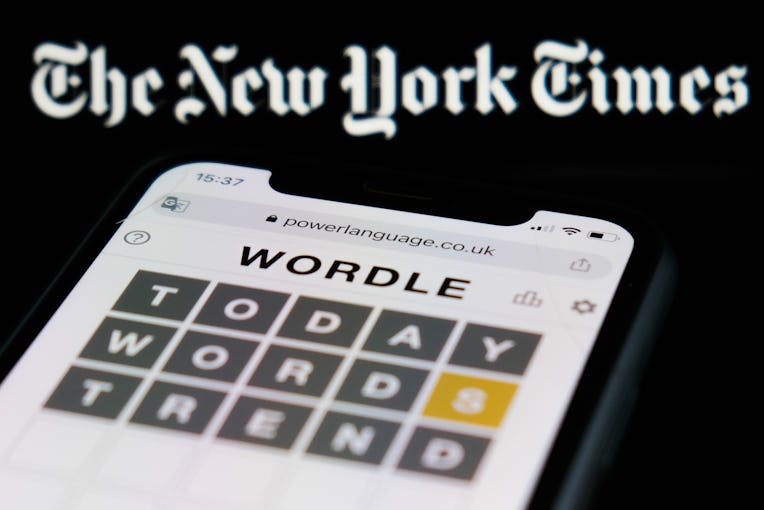The New York Times Is Playing Games With Wordle
What is the T R U T H ?

We all love to play games with words, either because they’re a fun way to waste time or because, according to a philosophy professor quoted by the New Yorker, they are “all about agency.” The gamers over at The New York Times HQ like a little polysemy as much as the next guy. So riddle me this: Did the Times lie about making changes to the viral word game sensation Wordle or were they just goofing around, like when they endorsed Amy Klobuchar for president?
To catch you up: Wordle is a daily online game originally developed by Brooklyn Reddit engineer Josh Wardle for his girlfriend, which everyone online went nuts for, partly due to its visual simplicity, innate scarcity (you can only play once per day), and sharing capacities that make it easier to connect with distant older relatives. The New York Times bought it a few weeks ago for $1 million. This prompted agita over the fear that the formerly free game would eventually be paywalled, and that the Gray Lady might try to mess with success. The game officially transitioned to the Times’ website on Feb. 10, and grumbling began over whether it had suddenly become harder. The Times claimed it hadn’t. On Sunday, they told the Guardian: “Nothing has changed about the gameplay.”
Sick. By which I don’t mean nice but rather twisted in the head! Because here’s the thing: gameplay did change, if by gameplay you mean, “the specific way in which players interact with a game.” On Tuesday, avid Wordlers awoke to the worst day-after-Valentine’s gift they could imagine — two possible Wordle solutions, one of which was much harder than the other. In a mind-melting fork, the original Wordle — which you can still play by ripping its source code — had broken with the Times version. Anyone who played the original game would have one answer; Gray Lady lovers would have another. Why? According to The Verge, the New York Times had in fact made a couple changes — they had not only removed some words as possible guesses (“pussy,” “boner,” etc. the fun ones), but some of the pre-programmed future solutions (“fibre,” “wench,” etc).
How about that. Either the New York Times lied to the Guardian, or their understanding of the word “gameplay” is specific enough that it excludes the two most central elements of the Wordle experience — guessing and getting the answer. The Times did not immediately return Gawker’s request for comment, so the jury is still out. For now, we’ll leave you with this: the answers are aroma and agora.
Update: In a statement sent after this post first published, a spokesperson for The New York Times wrote that the paper was “updating the word list over time to remove obscure words to keep the puzzle accessible to more people, as well as insensitive or offensive words. AGORA is an example of an obscure word.” He encouraged players to “refresh their browsers to ensure they get the updated word list,” and confirmed that by “gameplay,” the Times had meant specifically “the mechanics, or rules, for how the game works.”